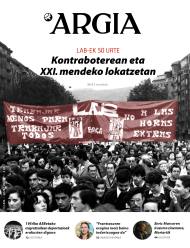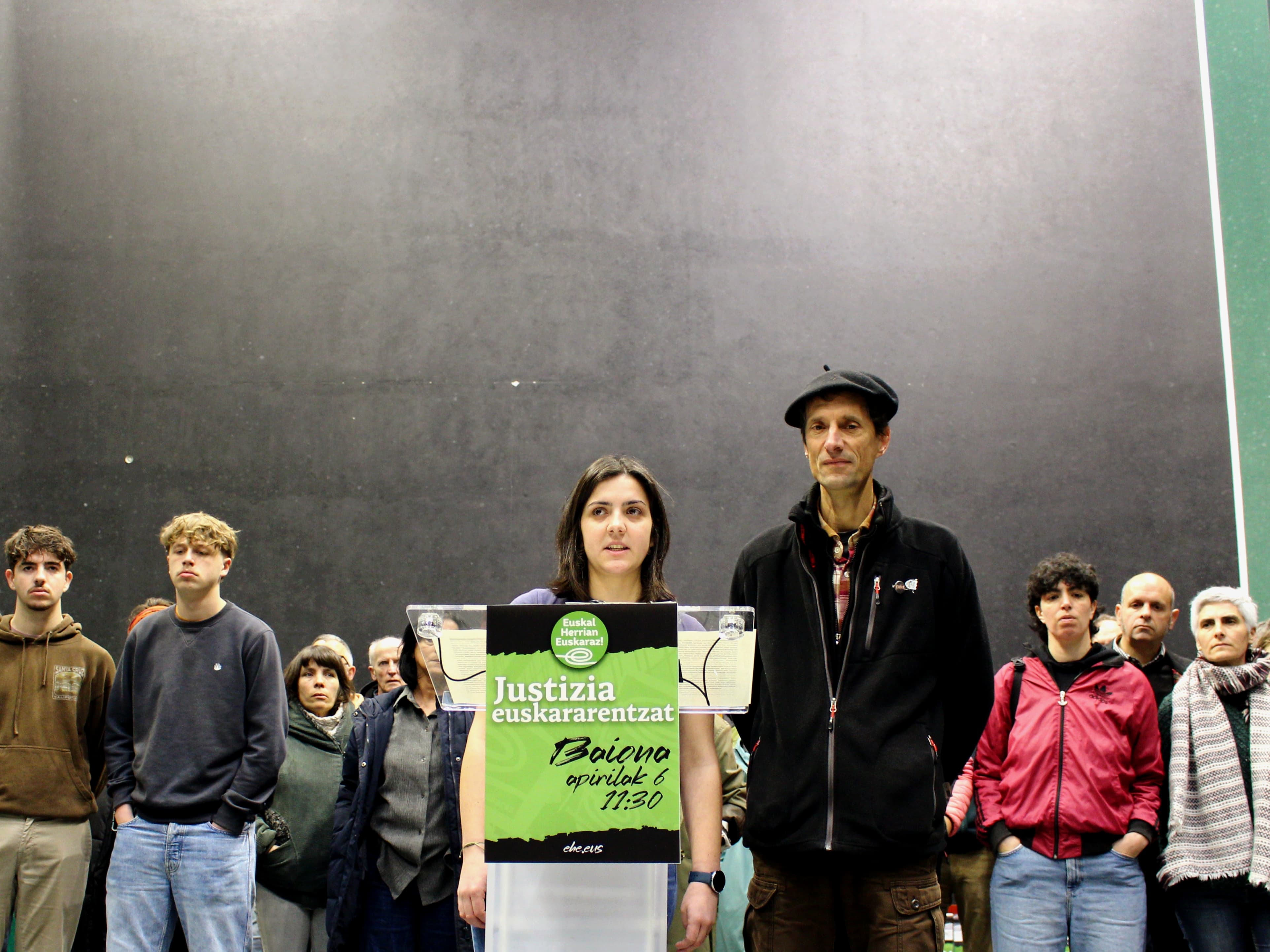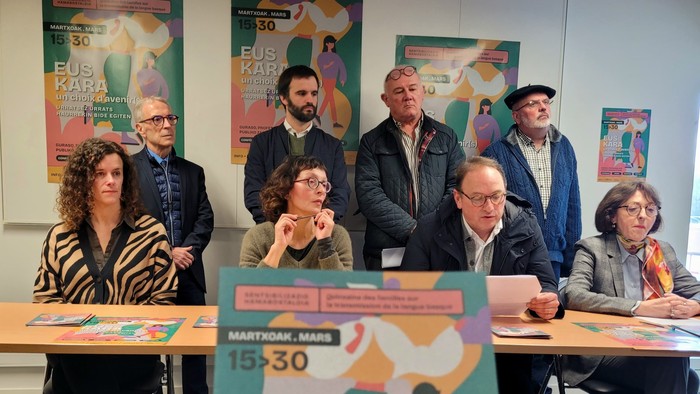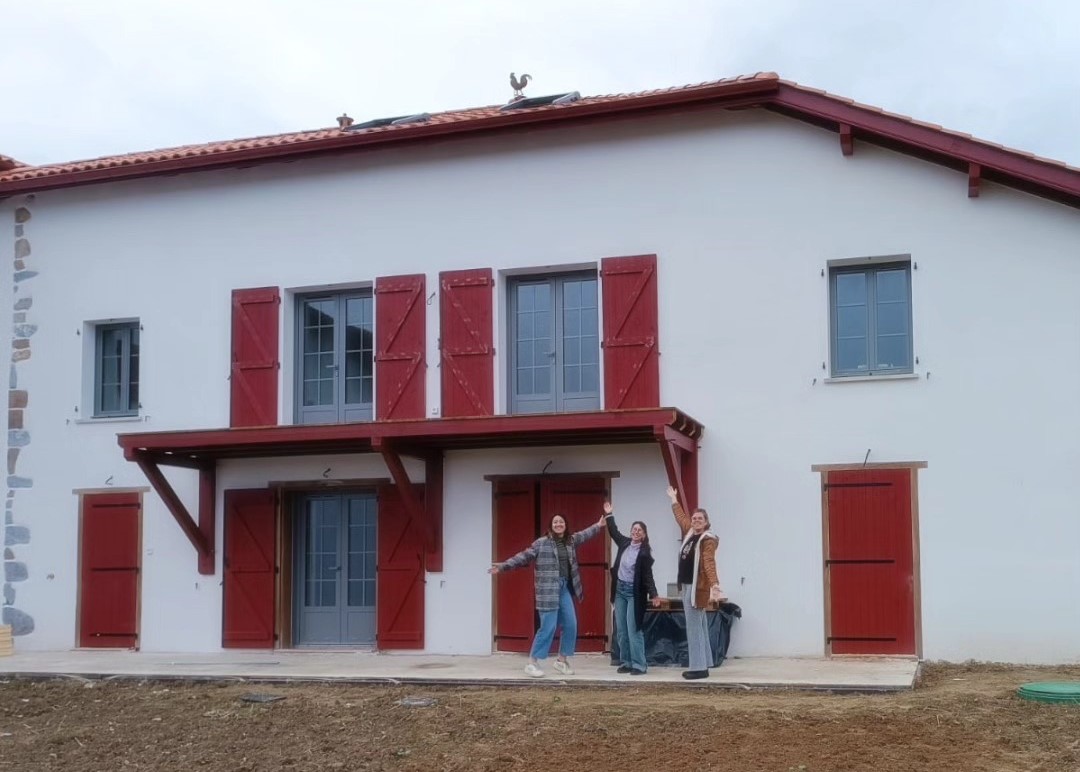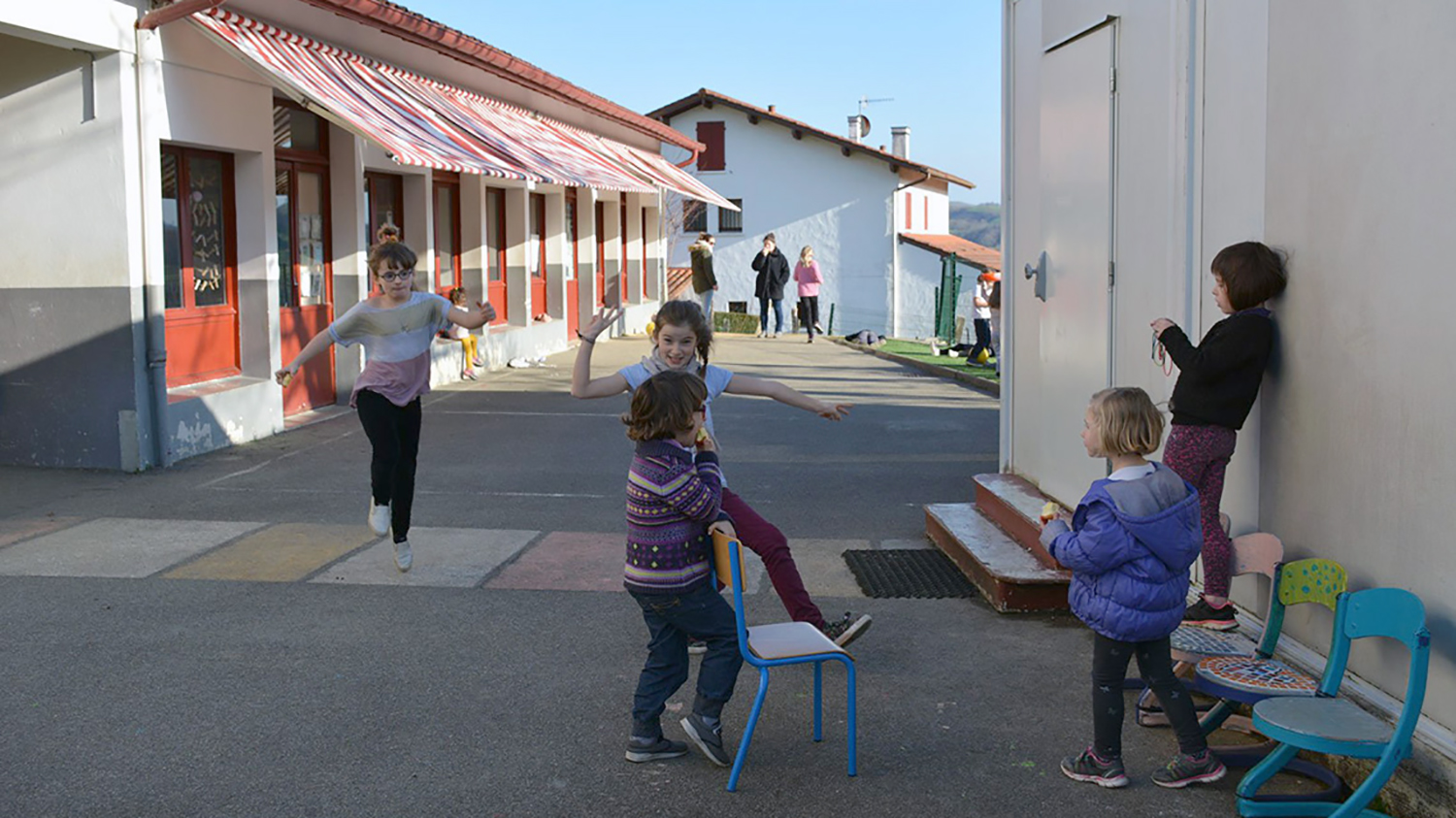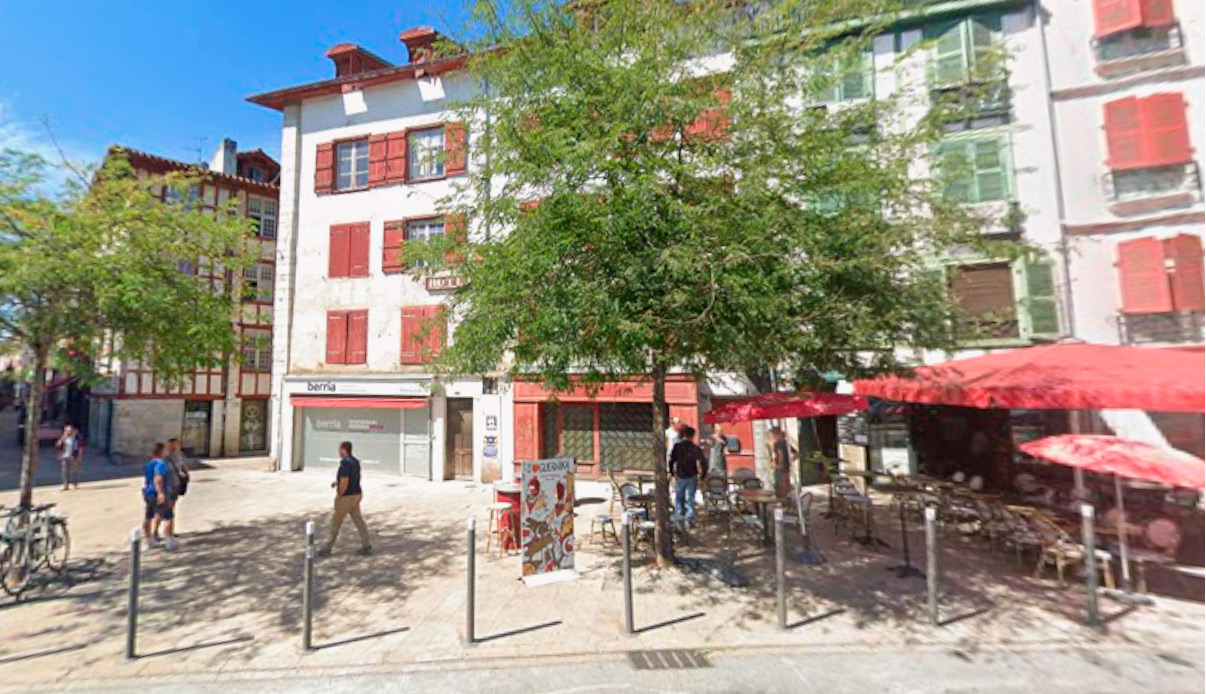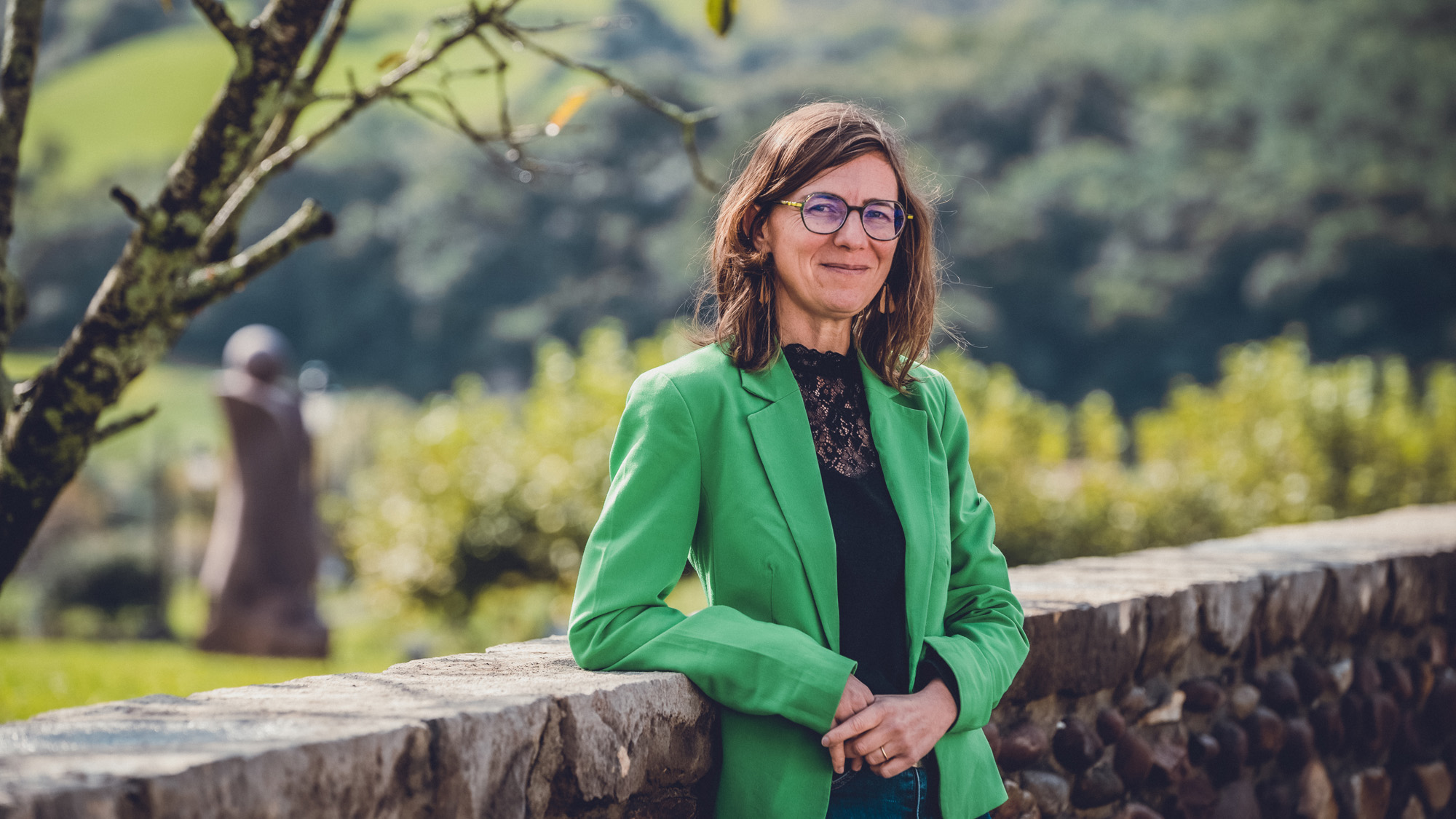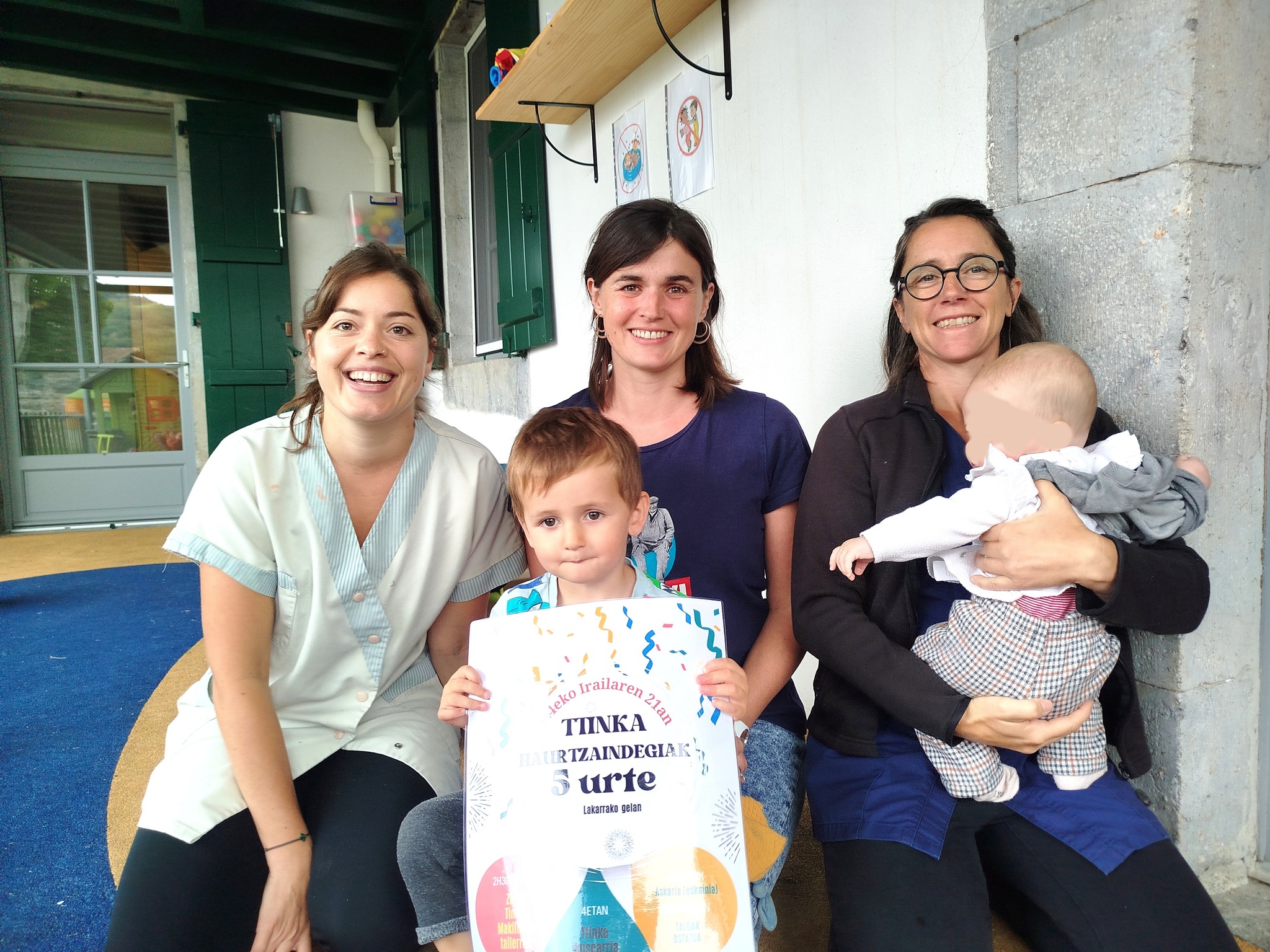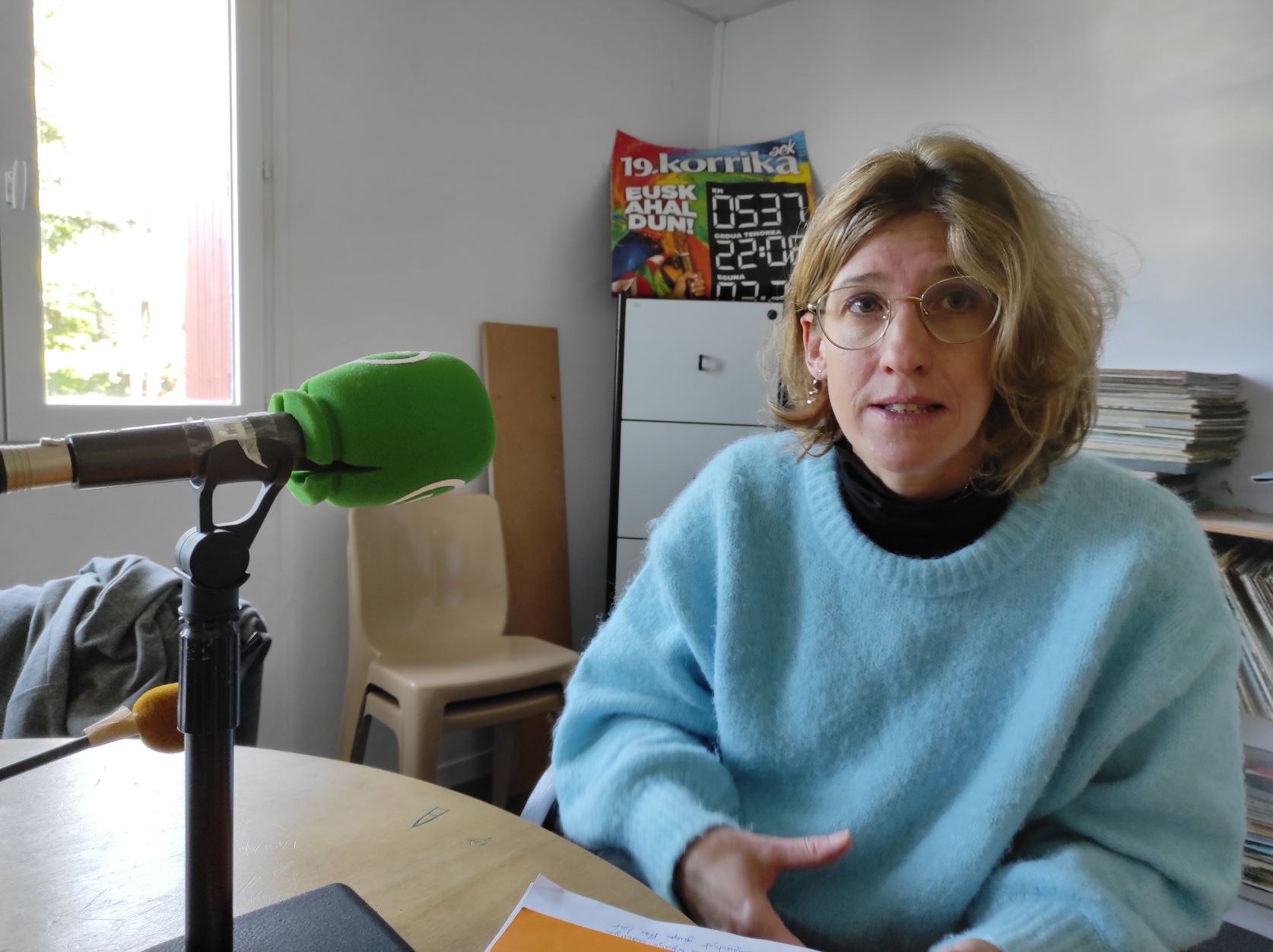“It seems that the colloquial language, in the South and in the North, cannot be separated from Spanish and French”
- Maddi Kintana presented in June her Final Master's Work in collaboration with the University of Bordeaux and the Iker research centre. With the title The Youth Language in BAM and its environment, has analyzed the language of young people between 18 and 24 years of age from Biarritz, Baiona and Angelu. To this end, it has carried out the audios of Whatsapp that have asked for them and has carried out the debate sessions organized for this purpose. It has been directed by Irantzu Epelde. The Donostiarra settled in Baiona wanted to know the Basque of the place where he lives, as well as the language of his friends and friends.
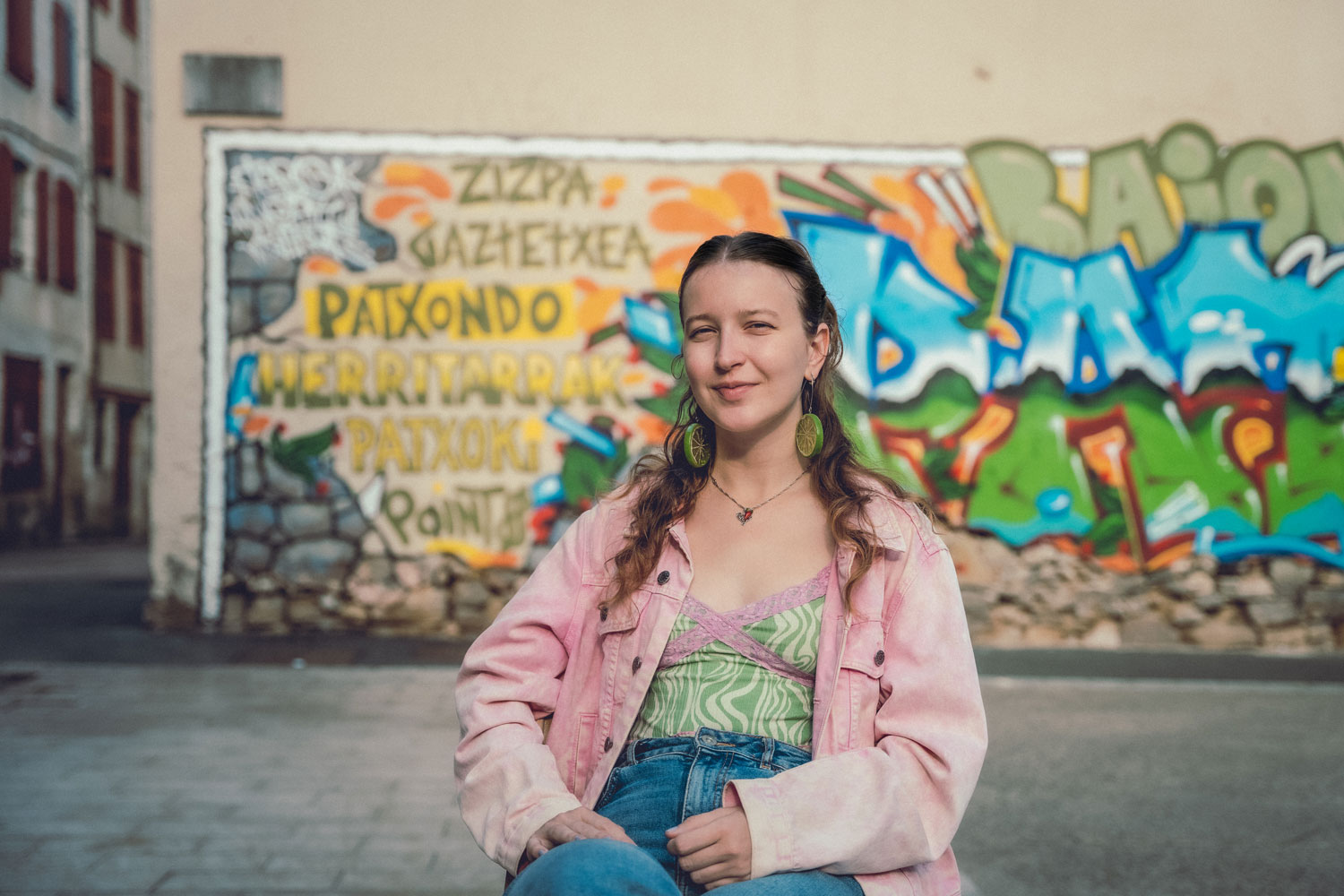
I had a hypothesis. The language of the young people of BAM influences mainly in French, and also in Basque Batua. Has the hypothesis been met? The
French hypothesis has been fulfilled and has gone beyond what was expected. In the pronunciation we found a lot of French features that we didn't expect. The truth is that we believed that the influence of the unified Basque would be greater in the colloquial language. In the unified Basque country, we have found some curious things. For example, the use of sound ñ. In fact, here, they shouldn't, but they should say 'yes' and not 'yes'. We have not clarified whether it is the influence of the batua or the language of the South. The hypothesis is that ikastola may have something to do with other factors, such as the audiovisual production of Hegoalde. We have not analysed it in detail.
Where is the French they imitate? You mentioned in your work the suburbs of Paris. Do young people look here?
We have not examined exactly what French they are doing. However, the youthful forms of the suburbs of Paris, in general, have a great influence on the non-responsible French – colloquial – language. That's where the rappers come, the popular culture has a lot of strength, the streamers are also there... And that's what young people consume. It influences, because, after all, France is a very centralised state. Each Neighbourhood will have its own language, but some things come out of Paris and Marseille. Anyway, I didn't look at it. But we've been reading about the language of the suburbs of Paris and we've realized that the things that happen there happen in the productions of our young people. We have not analysed it in depth, but there is a parallel claro.En
your work has said that, for the time being, they are not using Arabism.
No agreement has
been received. You have not appeared, but you can do so.
Yes, yes. I listened on the street to the arabisms among the Basques. Very few, but I've heard them. The point is that they have not appeared to us in our productions. That would be an exception. However, it may appear in the coming generations.
If so, why would it have been because it has been introduced via the Internet and audiovisual media or because Euskaldunes have direct contact with young people who speak that language?In my opinion, it comes through popular culture, but not
from everyday relations. There's a ZUP neighborhood in Baiona -- but I don't think it comes from this kind of relationship. The arabisms are widespread, they are widely used, it is not a language associated with a certain type of young person. In the work I mentioned the word wesh, but it hasn't appeared in my corpus. It's a form of greeting. Anyone can say that word, it should not belong to a specific linguistic profile. Some words are democratized. Unlike the South, in the French state the culture of hip-hop is very lively, it is very rich and comes from peripheral neighborhoods such as Marseille or Paris. It has a huge cultural influence.
He has found signs of the existence of the South and of the Gipuzkoan. Where have these footprints appeared?
Our work has been to describe what we have seen and, from there, we have raised some hypotheses: it can be the influence of parents [because they have something from the South] and the studies have been or are being done in the South. But we realized that some of the parents who use these forms are French, and in their environment there were not many people from the South. So, it can't be geographically close or family. We have to look for other factors and our hypothesis is ikastola. Perhaps because most of the contents in Basque were born in Hegoalde... but we have not investigated it and it is only our opinionn.Tambialso
mentioned the influence of liceo. That is, the ikastolas are several, but all the students of Ipar Euskal Herria have a single liceo to learn Euskera: Bernat Etxepare.
Most of the participants have passed through the Liceo Etxepare and those who have not passed through the school [Seaska has five schools]. There's not much difference. Among all of them, one hasn't learned at the ikastola and you can see it. It is noticeable that he has learned Basque in the bilingual section of the national education. Unfortunately, I have not achieved anyone else in bilingual education, so if I have the opportunity to disseminate the research I will try to put strength in the bilingual student body. There, a lot of people are learning, but we don't know how they speak. What comes to us is that they then go a lot to AEK. In this example, the difference between the bilingual and the other is very evident.
What a difference? In
fluency, he introduced French words, doubted the productions, most of which were grammatically incorrect. It can almost be said that he was not able to pronounce an entire sentence well. I understood everything, I could participate, but I spoke French directly to the Basque. But as I said, it's been the only witness, and that's not enough to say, "Bilinguals speak this way." In the work you say that they speak more and more homogeneous, and also that the language of BAM and Hegoalde
are moving away. Therefore, the influence of ikastola is noticeable and the use of the Basque is homogenizing, but is it moving away from the South by the greater influence of the French?
Yeah, that's it. More people have said so, too. Alex Arzelus looked at the languages of the border and said that in Luzaide, Arnegi and Garazi, for example, the political border has become a linguistic border. I have not looked at the language of the border, but we thought of the influence of the French: "If someone from the South reads this, they won't understand it without an explanation. ". There were Hegoalde professors in defense of work and we had to think, for example, how to explain it to them. On the one hand, it is homogenizing, the ‘North Batua’ is being created, and the truth is that it is not very well defined what that is, and at the same time the influence of the French is stronger than ever. The political frontier is easier to cross than ever before, but it is bigger than ever and it is noticed in the conversations, in the cultural references. From now on understanding is complicated; or they pass a language record completely, because in irresponsible language it will be complicado.Por so, they will resort to
a more formal record that allows them to understand themselves, more united, what have aprendido.Al less that
me parece.Puedo be wrong. Around me, I also see that: go to the sum and blur the irresponsible language a little. It seems that irresponsible language, in Basque, cannot be separated from Spanish or French, both in Hegoalde and in Iparralde.Para research has chosen an area with special characteristics: the urban space and the most French area
of the Northern Basque Country. Did you have a particular interest in working in this field?
I realized that on the coast of Lapurdi there are very interesting things, and that here you talk about them and the juvenile language has not been analyzed by anyone. The focus is on the dialects, on the dialects (today they barely exist). The change of French-Basque code was almost unanalysed. I told the director Irantzu Epelde that she wanted to analyze the Basque of the place where she lived and recognize it in a sense. I wanted to do a job on city Basques. Being from Donostia, I felt that we were not many times, perhaps at the same height, compared to the Basques of the peoples, or at least they have made us feel. We weren't good Basques. Here, too, I realized it was the same. Baiona is a very castellanized field, it can be done in Basque, but you have to know where you can do it right. Most Basques live here, although in proportion they are not. What happens here also influences the future. I have analyzed this issue for many factors, and mainly because I live here and wanted to study the Basque of my friends.
Trust, you say. Did you want to oppose the despised?
I cannot resist, but at least acknowledge that there were Basques here. Peru Abarkatik (19th century): baserritarras and alleyways, some with good Basque, others in a poor state of confusion. Many of them are complex because they are urban and do not have a dialect. Such feelings have appeared in the debate sessions. Yes, I wanted to confess; yes, there are Basques in the city and entire Basques.
The word moulding: The influence of the Southern feminist movement
"The Spanish has appeared very little. Very interesting case: the word bollera appeared in a debate session. From the south is spreading the wave of feminism in Ipar Euskal Herria, and my hypothesis is that this word is witnessing its influence. The effect that this phenomenon can produce in terms of vocabulary can be observed. On the other hand, more and more students come to universities in the South to study. What impact will this have on the Basque Country? ".
“A couple has used 116 times ‘end’”
When Maddi Kintana has uncovered the influence of French, he has analyzed in particular the changes of code (mixed use of Basque and French, even in the same phrase) and phonetic and semantic calcos.
Kintana has given us some examples of what young people used in the debate programmes and in the audios of Whatsapp.Por example, it is very
common to use a French word while maintaining the grammatical structure in Basque, and to pronounce in French. Kintana finds the word Scotch (zeal): Excuse me, I've left the scotch. The next time, the young man has lent the verb, forcer (oblige in Basque), gave it a structure in Basque and pronounced in French one or two words: Yes, I think it's that they were forceful to mention them all.
He found another example of the hybridized pronunciation, using the verb engueuler (rebuke): ... and a little bit for the Basque Country to come and shrink us by its own medios.Otro phenomenon that has found a
lot is Afrikation. Afrikation is about turning the frayed sound into africation, let's say the sound [s] becomes [sounds]. According to Kintana, in France, in early 2024, the media made an “emergency call” on Afrikation, because young people spoke of Afrikation. "There has been tremendous controversy, because that language used by young people in peripheral neighborhoods is not nice in French and the controversy has been related to racism." It was hoped that some Afridians would be found in French, but they have met more than one person who has participated in the meetings. For example, some always speak the word [always] as follows: [drunk] and dear [beloved] [beloved].
Kintana has also devoted an important space to the syncups, which have been left out. Syncope occurs when a vocalic phoneme falls into a word. At first, Kintana thought he was making a syncope because the speakers had a fast pace of conversation, but in the debate sessions they realized that they were all doing it. Because he gave us the example of the ligament. "In Iparralde, the sale has traditionally been used with contraction, but now you can hear the contractions of silk and filming. We can see that where we can find a vowel in Basque (a, e, i, or, u) the speaker does not pronounce it, and instead uses the letter schwa [92] that comes from French or removes it completely."
Maddi, we hear you saying that it is difficult to find a phrase without a
change of código.El code change occurs at all ages, among other circumstances is the diglosia. The speakers use it to give expressiveness or because they feel a lack of lexicon, and the young people even more. It's not a feature of juvenile language, but it's done by all young people. Most of all, they do it with bookmark speeches, well, well, instead. Most of them have been used continuously in French. One pair has used 116 times the fine in 56 minutes. Examples of this kind are dozens and dozens.
Don't you know how to say it in Basque?
I don't think they do it consciously. "Uy, I've forgotten how this word is said in Basque! ". The use of fins is an example gathered within words of great fluidity. Participants said they would like to use less French in their language, but the change of code is widespread and normalized.
Discursive markers have taken much of my work. Another example: but they use it, but with a lot more mays.
He has also received traces of the
English s.Se is an anglophone hegemony that connects use with the influence of social and audiovisual networks: TikTok, Instagram content, influencers, meme culture, Twitter culture -- these were words that appeared in most of our programs.
And a curiosity: they use words in English, but pronunciation is in French and not in Basque.
25 bat eragilek adierazi diete elkartasuna apirilaren 11n Baionako auzitegian epaituko dituzten Intza Gurrutxaga eta Gorka Torre Euskal Herrian Euskaraz taldeko kideei. Egun batzuk lehenago, apirilaren 6an Baionan eginen den manifestazioan parte hartzeko deia ere luzatu dute.
Plazara, AEK, Uda Leku, Dindaia eta Ebete antolakundeak Baionan elkartu dira Famili'on egonaldi ibiltariaren lehen edizioa aurkezteko. Hizkuntza mailaren arabera eskaintza bat edo beste egongo da eta haur zein gurasoentzat izango da udaberrian.
Hizkuntzarako ere gurasoak haurrentzako eredu direla kontuan hartuta, euskararen erabilera eta irakaskuntzari buruz sentsibilizatzeko helburua duen hamabostaldia antolatu dute Hendaia, Urruña, Donibane Lohizune eta Ziburuko herriek. Martxoaren 15etik 30era guraso... [+]
Nafarroa Beherean, Aiherrako 'Beltzegitea' etxean kokatuko da Eguzkilore haurtzain-etxe berria. Euskara, natura eta motrizitate librea oinarri harturik, heldu den apirilean hasiko dira zerbitzua eskaintzen.
The problem of the afrancession of the names of the places of Euskal Herria is not only due to the lack of consideration of the language in the signaling panels, but also to the execution of a decision on the domiciliation that was taken a few years ago.
Ultimately, the... [+]
Larunbatean ospatu dituzte Ttinka mikro haurtzaindegiaren bost urteak Lakarran. Baxe Nafarroko euskara hutsezko egitura bakarra da, Euskararen Erakunde Publikoaren B ziurtagiriduna.
On May 17, five Euskaltzales of Ipar and Hego Euskal Herria performed an action coinciding with the call made by the students of the Bernat Etxepare lyceum to mobilize in favor of the Basque. On the wall of the Baiona Subprefecture, a message was sent to the authorities of the... [+]
“Geldi euskara zapaltzea” lema berriz hartu du Euskal Herrian Euskaraz taldeak larunbatean egin duen prentsaurrekoan. Maiatzaren 17an, esaldi hori Baionako suprefeturan tindatzeaz akusaturik, irailaren 10ean epaituko dute Gorka Roca Torre.
Ikasturte honetan, lehen mailako ehun eskola elebidunetan 5.700 ikaslek ikasiko dute. Bigarren mailan hamasei kolegio eta lau lizeotan 1.600 dira. Zailtasun nagusia aurten ere kolegioan euskararen eta frantsesaren arteko oren parekotasuna erdiestea da.
Start of the summer. EHZ festival hangover (atx, headache). You want to breathe after a charged course. Flush the head. Reconnect key elements. Take some time with family, see old friends again and rest (a little) in the daily struggle. Really? !...
As a family, walk to the... [+]









